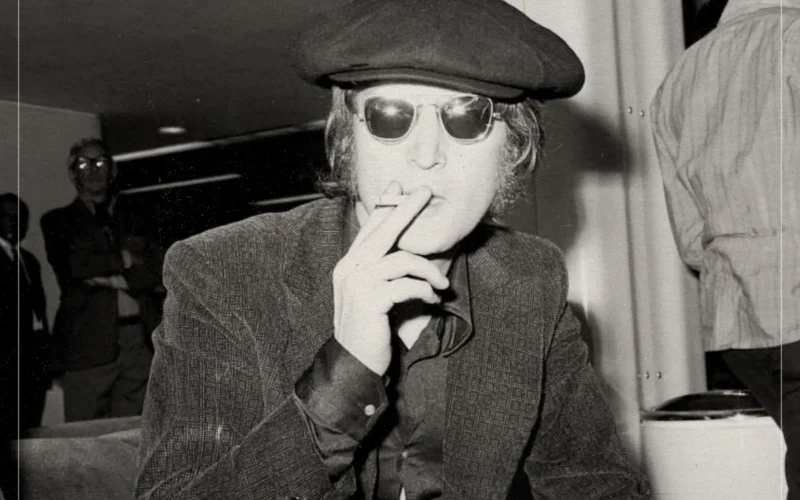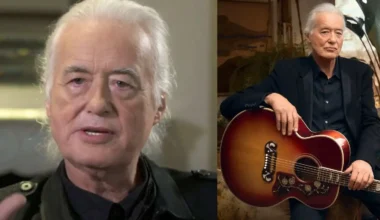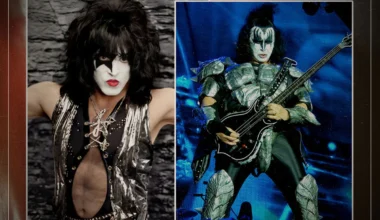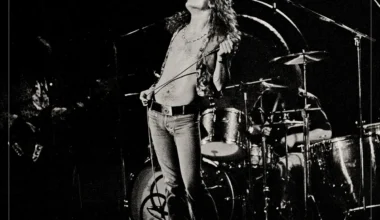There are a few misconceptions about John Lennon‘s character that will take different sets of his fans by surprise. If you’re a casual fan of the singer-songwriter and Beatles icon, then you might think his peace and love rhetoric is as core to him as a human as it was to his songwriting. Tracks like ‘Imagine’ and ‘All You Need Is Love’ certainly put that message across. But the truth is very different.
Lennon, as well as later opening up to his abusive and violent tendencies, was notoriously bullish. He rarely backed down from a challenge, and any sort of peaceful intention was something he was willing to fight tooth and nail to achieve. Likewise, if you’re a more determined fan of the musician and the hard-headed creative is your vision of Lennon, then you might be surprised to learn that he was also very afraid, too.
He wasn’t scared of the United States government as they attempted to have him deported, and he wasn’t scared of the fans who swarmed him and The Beatles during their heyday; however, he was frightened of Elvis Presley.
“Before Elvis, there was nothing,” Lennon once famously said of the man known most affectionately as ‘The King’. It wasn’t just in his native USA that Presley changed the face of music. The singer’s impact on British culture as a whole can hardly be understated, so when a group of teenage boys who were about to call themselves The Quarrymen heard this new rock ‘n’ roll sound, you can imagine the fire it sparked within them. But it was more than that for Lennon; Presley would become a beacon to follow.
Elvis had always been an icon for him: “Rockers is what we really are. You can give me a guitar, and stand me up in front of a few people. Even in the studio, if I’m getting into it, I’m just doing my old bit… not quite doing Elvis Legs but doing my equivalent. It’s just natural. Everybody says we must do this and that but our thing is just rocking. You know, the usual gig. That’s what this new record is about. Definitely rocking.”
Of course, as The Beatles ended, Lennon would take his love of rock ‘n’ roll into his new work, allowing himself to fully fall into the genre and create music that aligned with his own sonic ethics. After getting his viewpoint clear, Lennon would even take on some producing duties, sitting behind the mixing desk for Harry Nilsson’s 1974 album Pussy Cats. Later, he’d help out both David Bowie and Elton John with similar results. The experience would have the musician looking for his next opportunity to work with a strong artist.
When asked in 1975 by Rolling Stone about what other musicians he would like to work with, he was quick to point to Bob Dylan, sharing: “Dylan would be interesting because I think he made a great album in Blood on the Tracks, but I’m still not keen on the backings. I think I could produce him great.”
Leaning into naming some of his musical heroes, Lennon continued, “And Presley. I’d like to resurrect Elvis.”
However, following a bout of confidence, it would appear that the sheer scale of working with a hero like that dawned on Lennon as he quickly shared his nervousness: “But I’d be so scared of him I don’t know whether I could do it. But I’d like to do it. Dylan, I could do, but Presley would make me nervous.”
Concluding, he noted, that he had set his sight high: “But Dylan or Presley, somebody up there,” he added. “I know what I’d do with Presley. Make a rock ‘n’ roll album. Dylan doesn’t need material. I’d just make him some good backings. So if you’re reading this Bob, you know….” Sadly, this collaboration would never come to be, with Lennon passing away five years after the interview.






